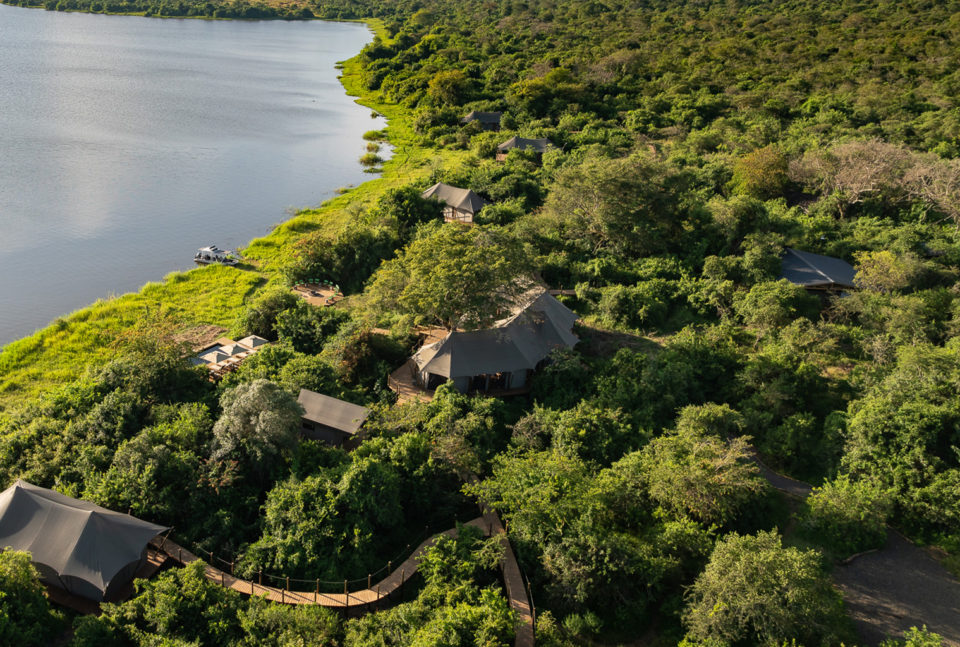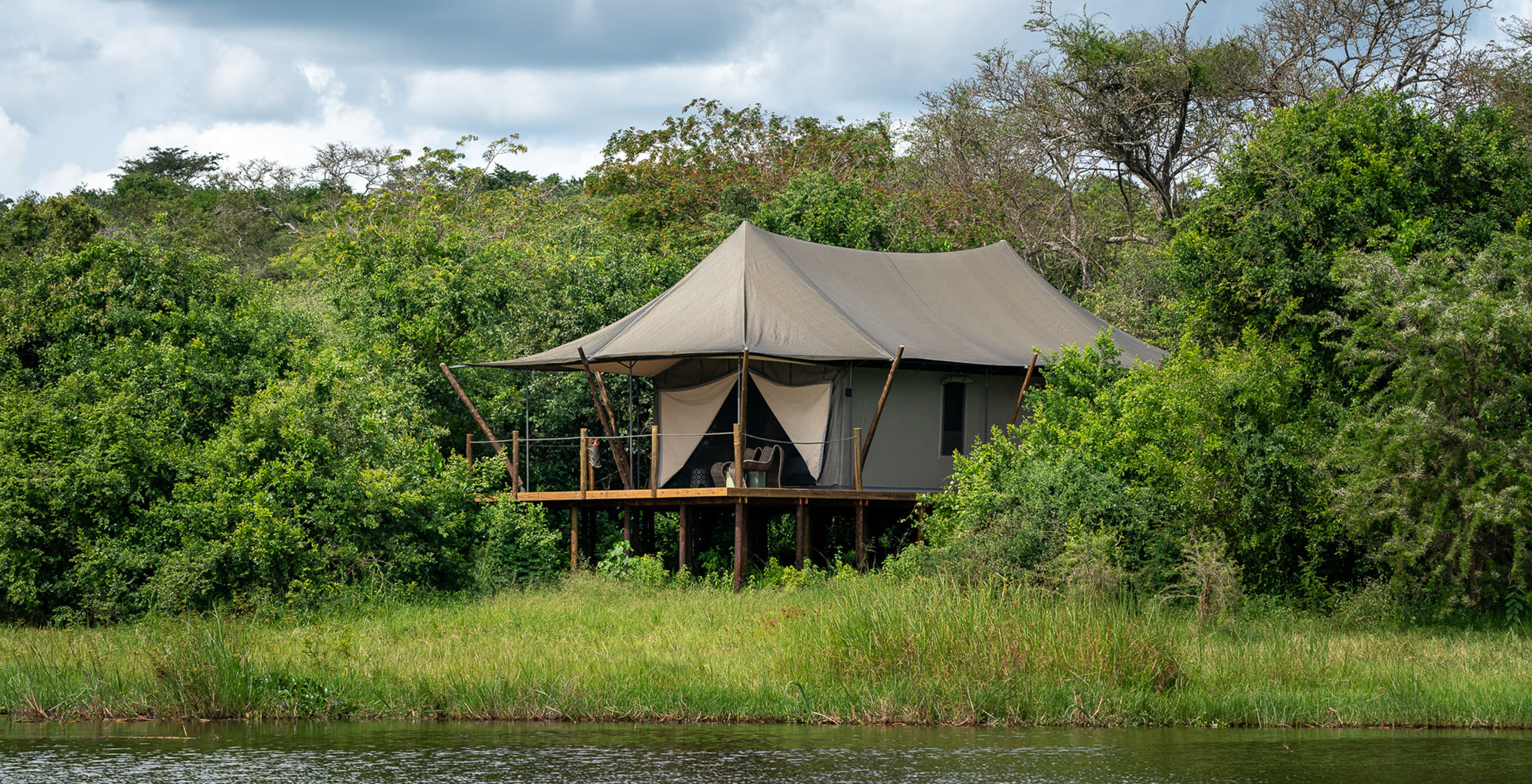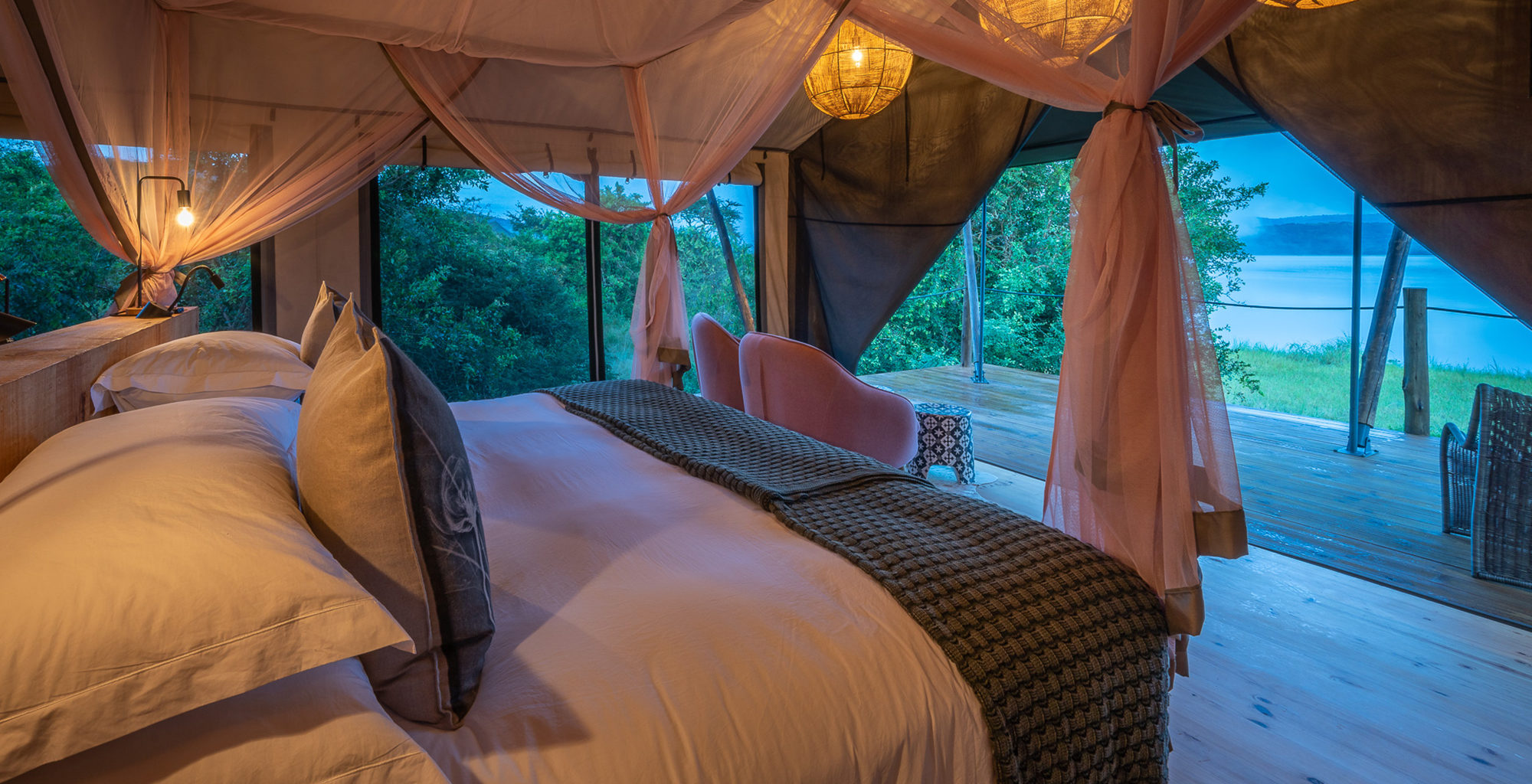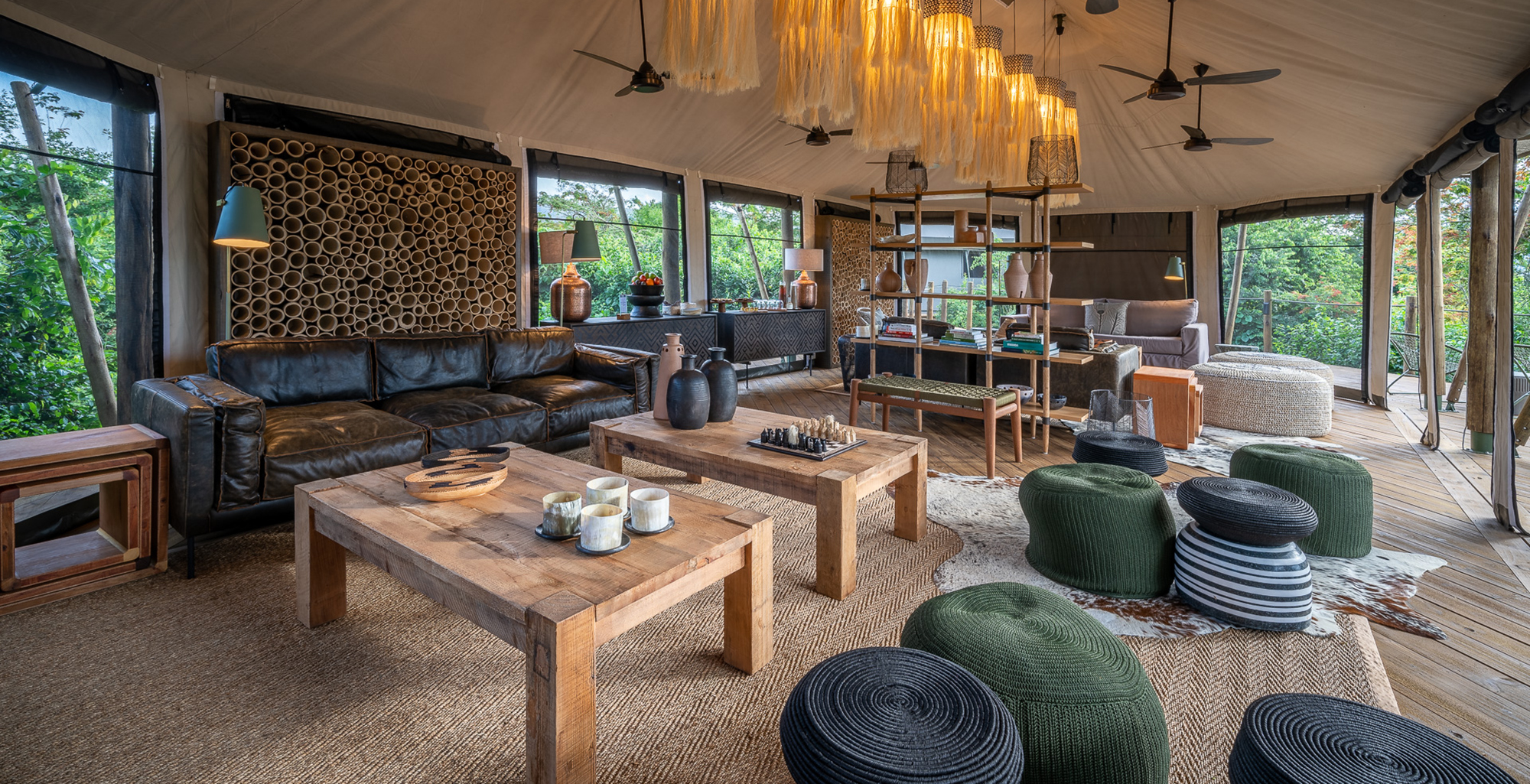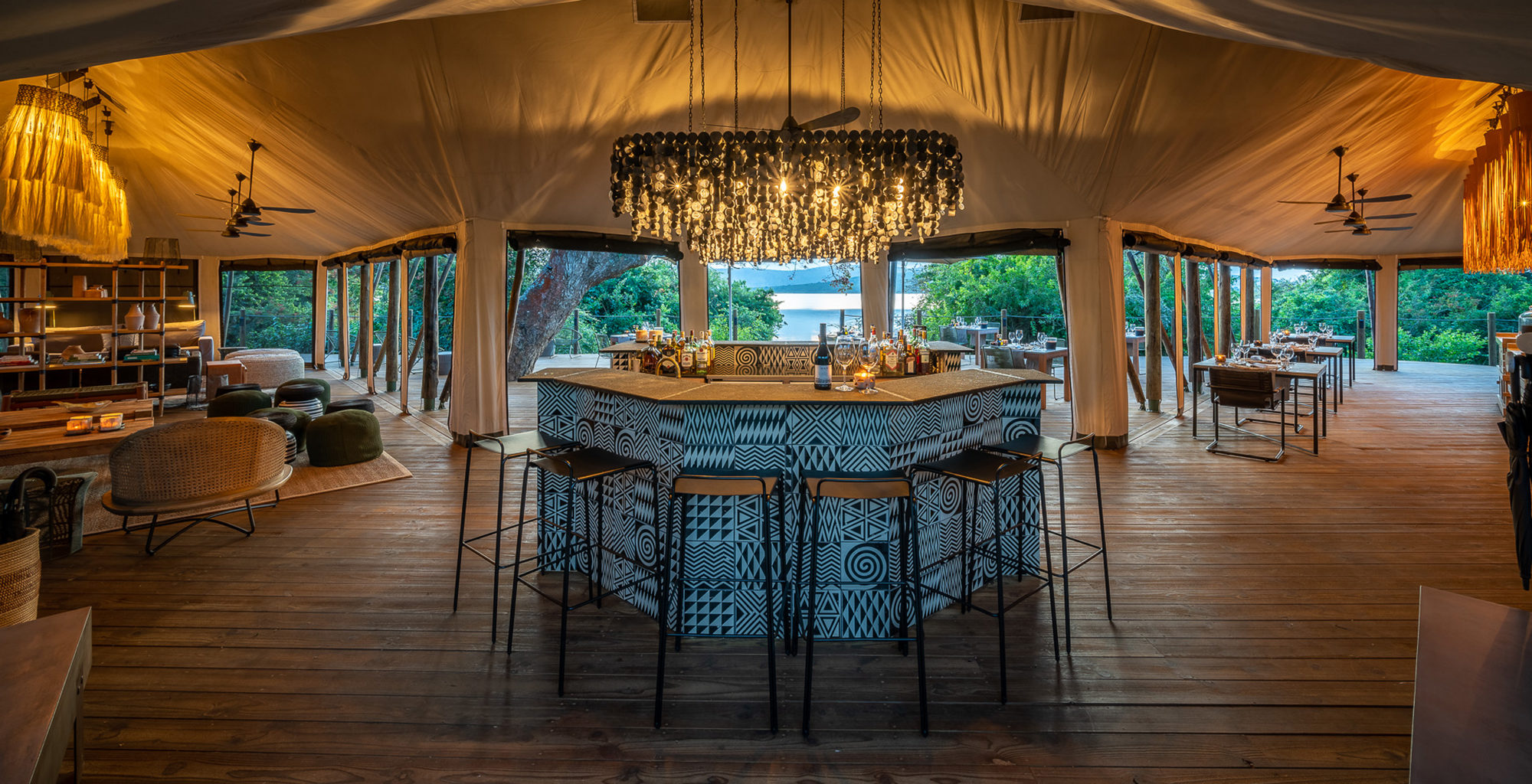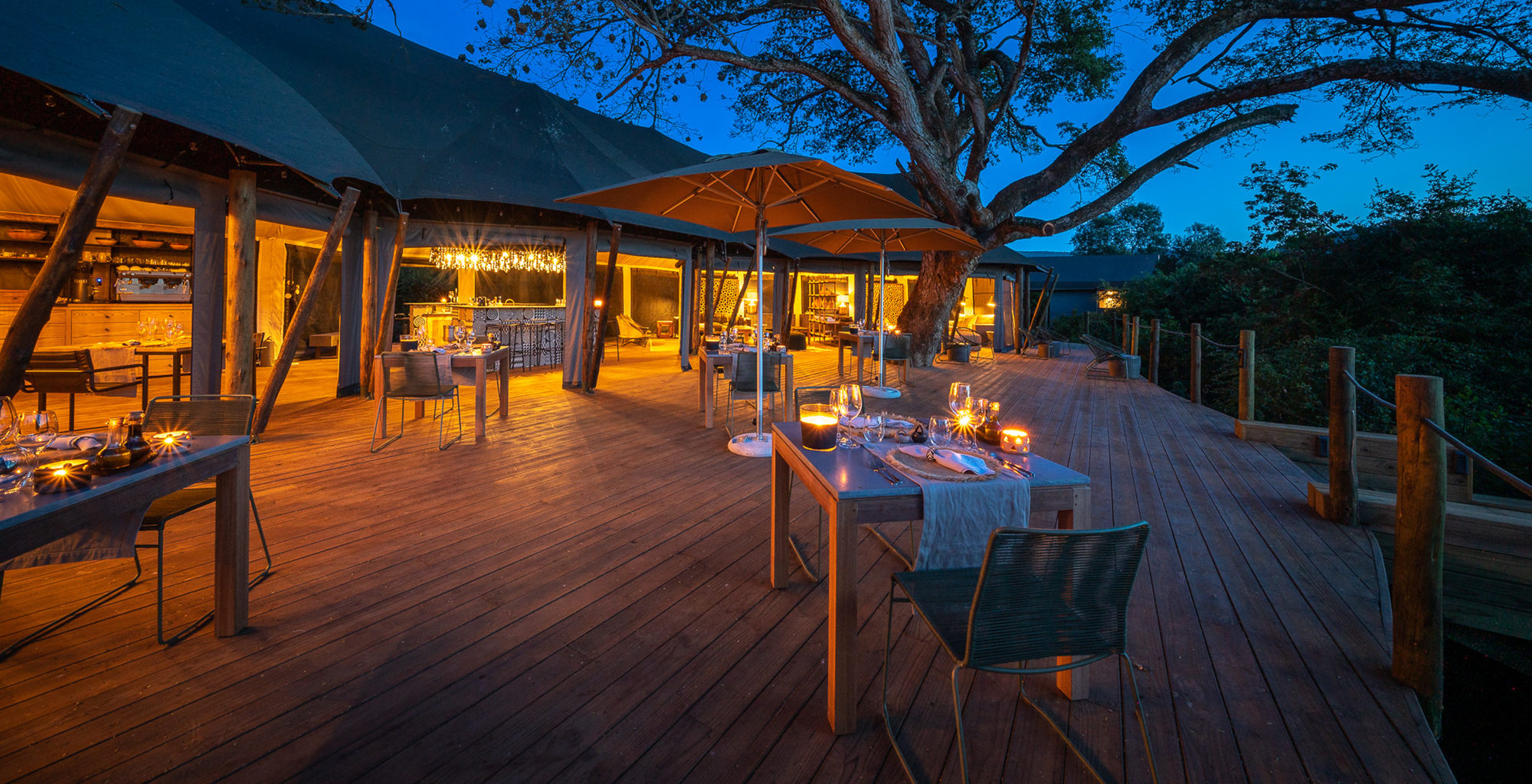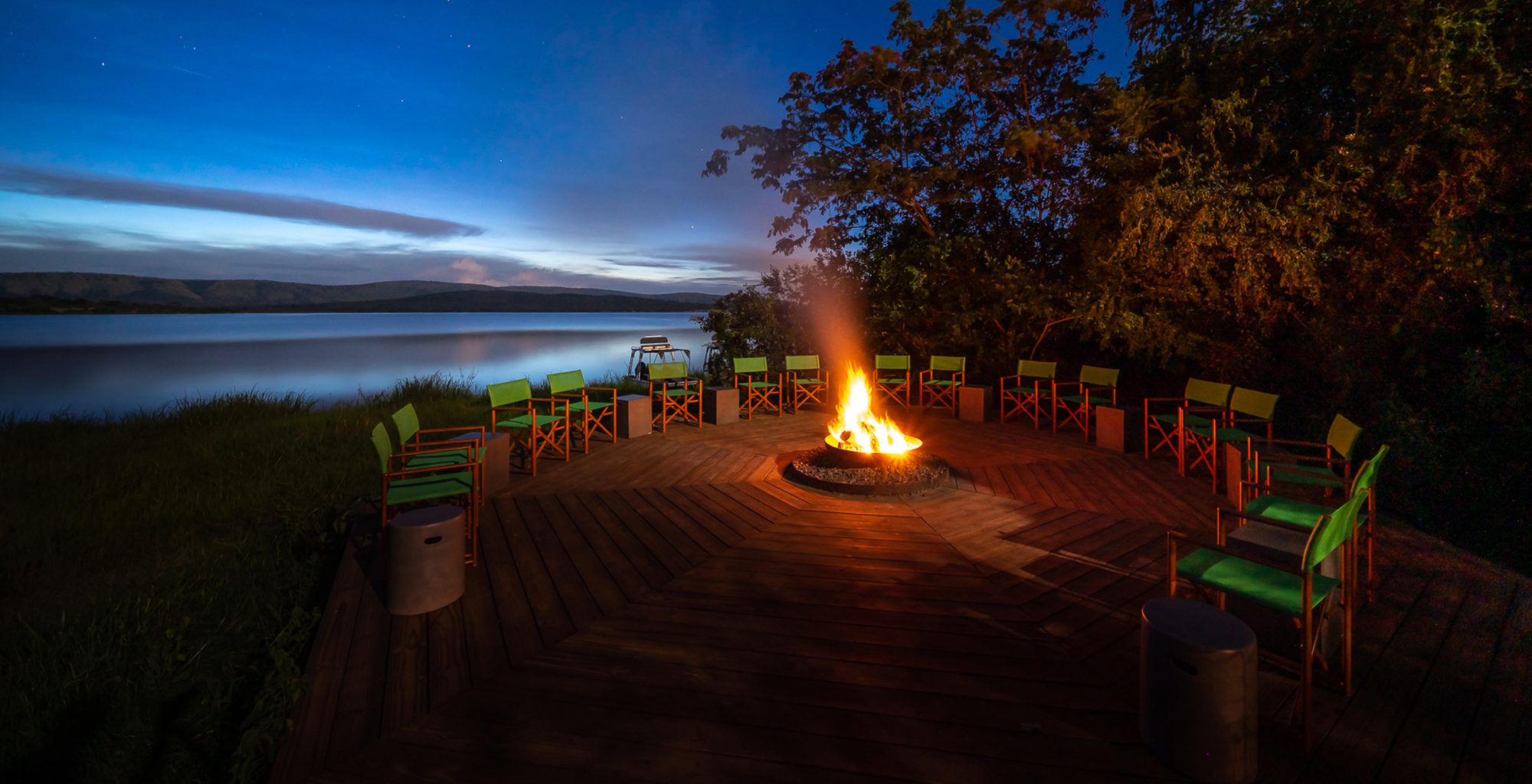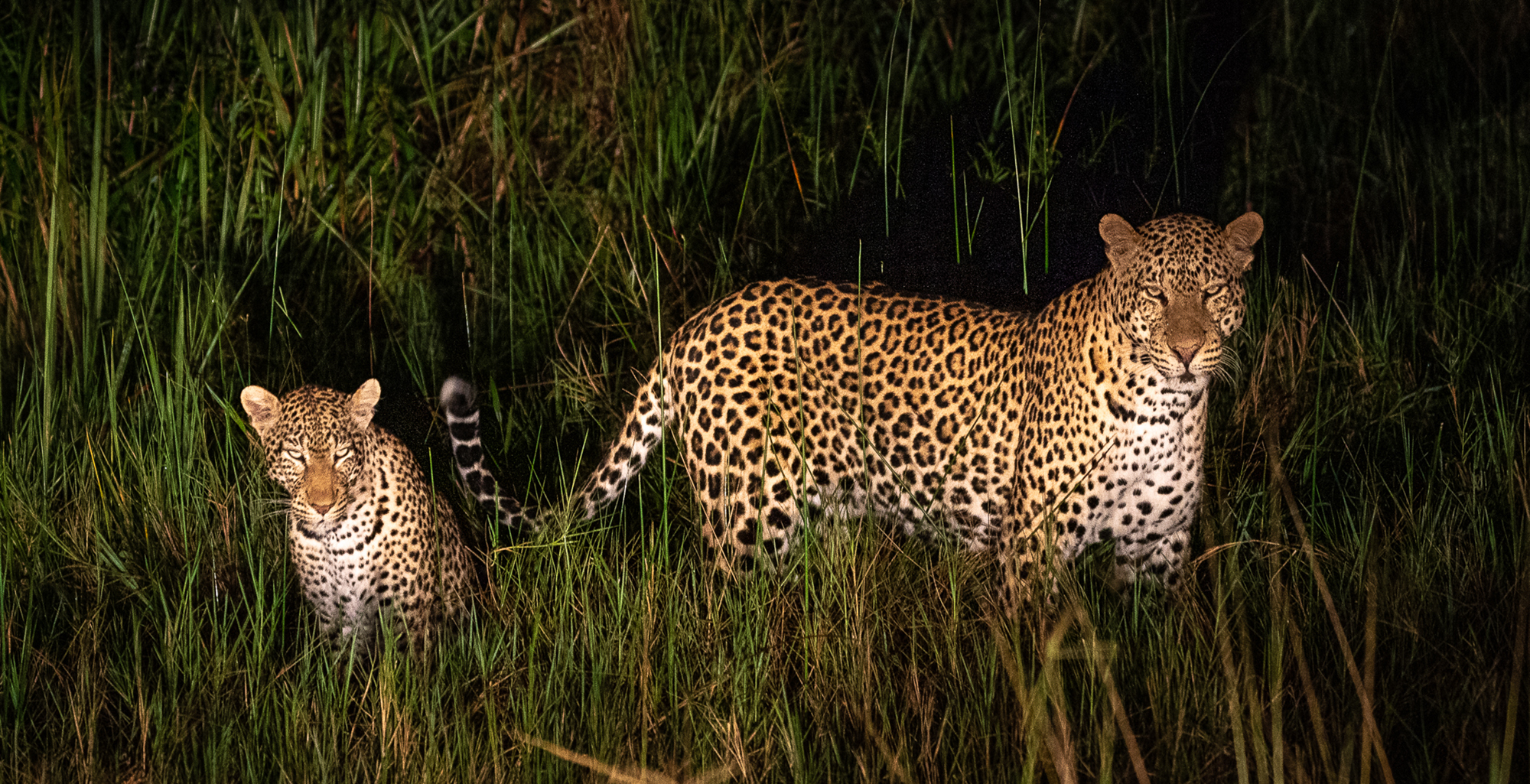Located in the north-east of Akagera National Park, next to Lake Rwanyakazinga, Magashi Camp is an intimate, classically constructed eco-camp.
Overview
Opened in May 2019, Magashi Camp is the result of a flourishing partnership between Wilderness Safaris, the Rwanda Development Board (RDB) and African Parks. Set on a raised deck, and architecturally designed very much in keeping with traditional Rwandan stylings, the camp is comprised of six tented suites, a lounge, dining and bar area, wine cellar, pool, and a viewing deck which features its own fire pit. There is also Wi-Fi available at the camp.
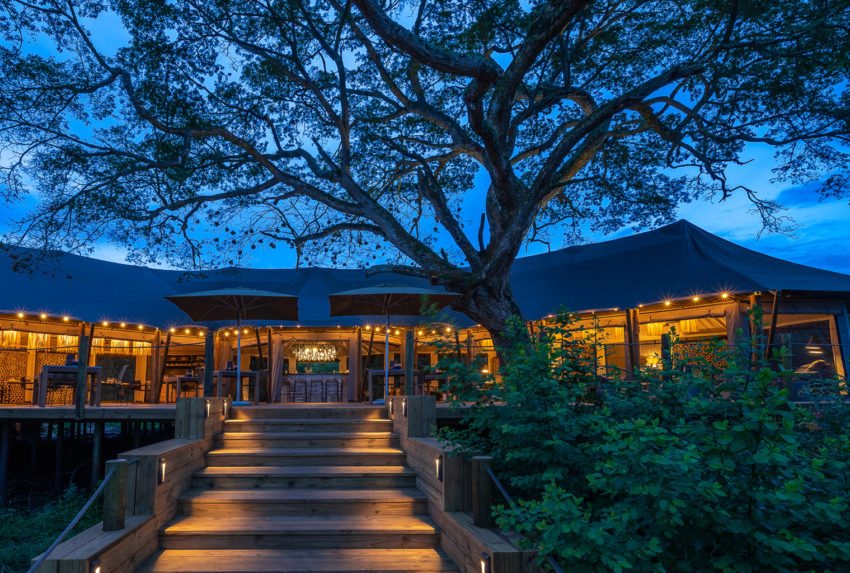
Service and food
The food, which is largely locally sourced, is fresh and delicious, while the service across the camp – especially the guiding – is absolutely excellent.
Accommodation
The camp’s central tent has a selection of wicker chairs, leather sofas, wooden tables and soft rugs – the ideal spot for relaxing and catching up with fellow travellers. The six luxury tents – defined by wooden flooring, gentle lighting and tasteful Rwandan artwork – come with a dressing area, writing desk and chair, lounge area, and a private outdoor viewing area. The raised four poster beds are characterised by a gorgeous transparent canopy, and when the tent’s outer canvas is rolled up guests can enjoy vistas across the park. The en suite bathroom is at the perfect intersection of classical and contemporary. Alongside a hot shower, it has a large mirror and a useful selection of timber draws for storing personal items.
Activities
Activities at Magashi include day and night wildlife drives – expect to see giraffe, buffalo, lion, zebra, leopard, hippo, elephant and spotted hyena among many others – boat journeys, catch and release fishing, and (depending on availability) an Olympus camera experience. The region is also home to 520 bird species, so bird watching is highly recommended.
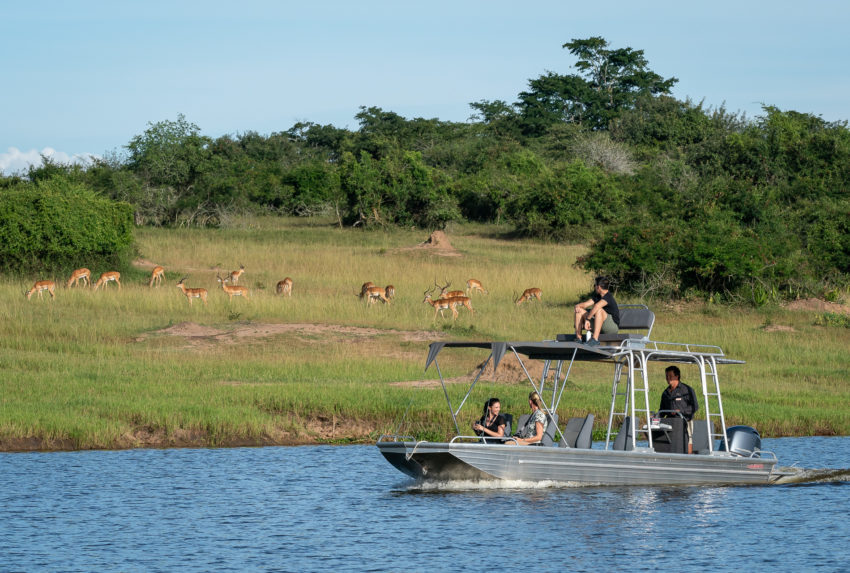
Ethics
Conservation
Akagera National Park, which is 100,000 hectares, has overseen numerous reintroduction initiatives. Lions were reintroduced in 2015 (after a 20-year disappearance) and black rhino in 2017. Poaching has also been widely eliminated in Akagera. The camp is also fully solar powered and single-use plastic free, further underlining its impressive eco-credentials.
